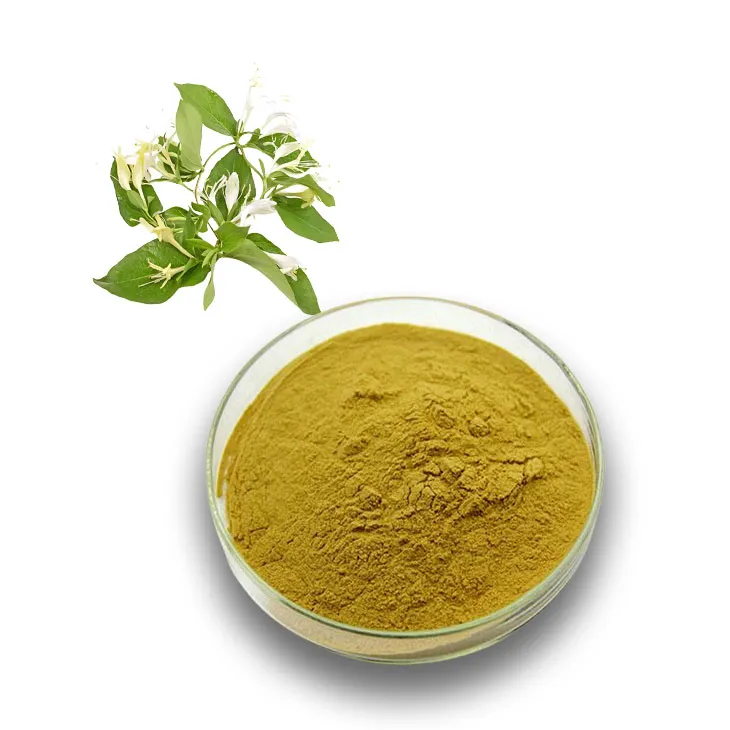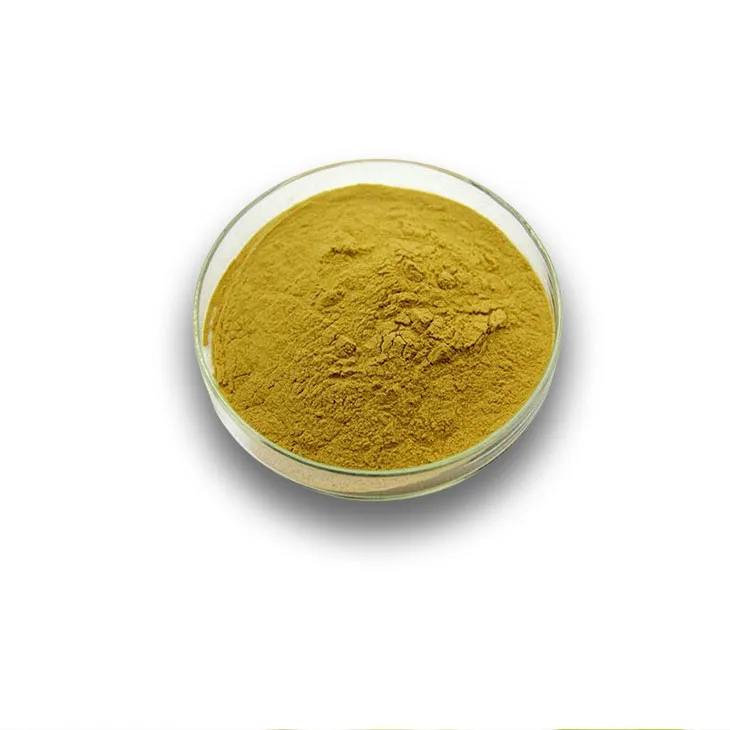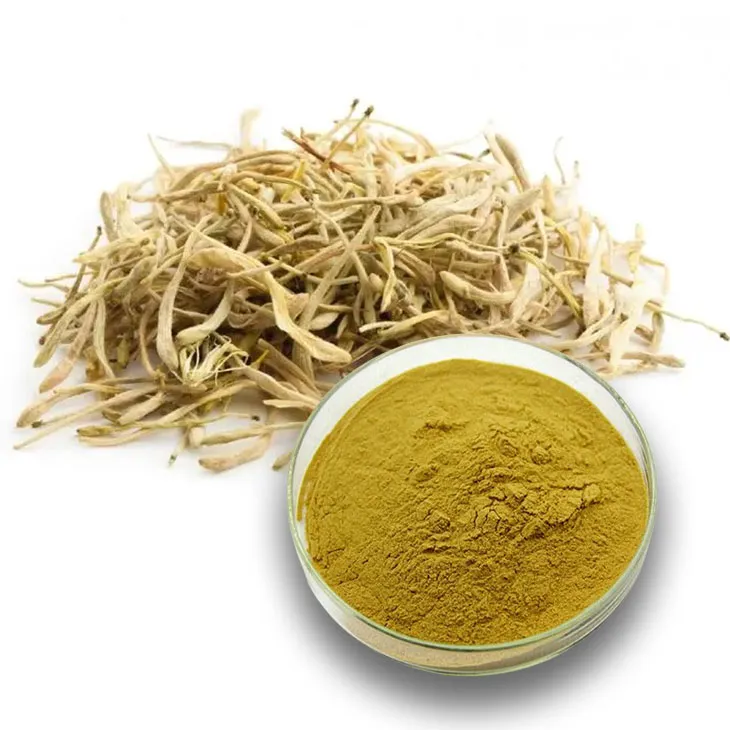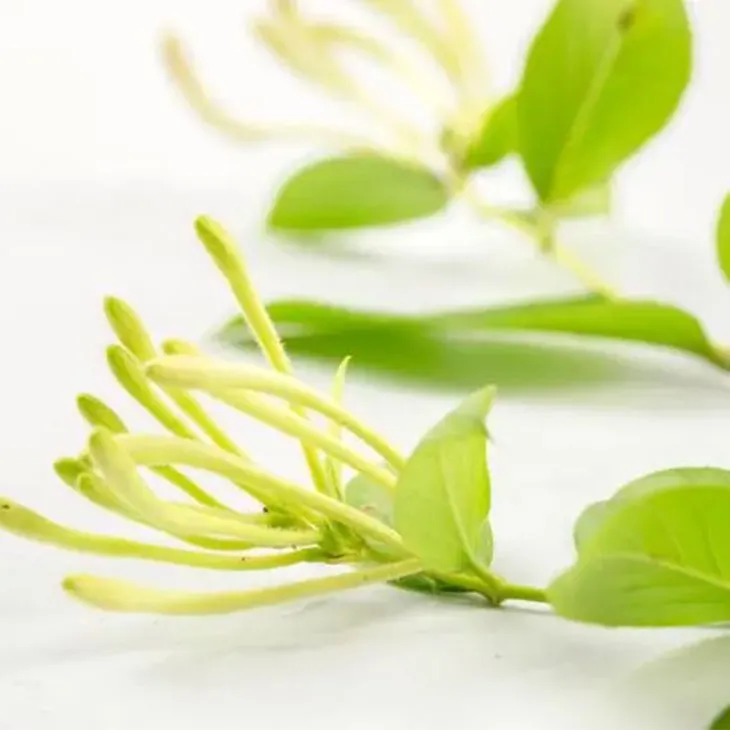- 0086-571-85302990
- sales@greenskybio.com
Two Basics of Honeysuckle Pollen Quality: Potency and Purity.
2024-12-11

1. Introduction
Honeysuckle Pollen has been gaining increasing attention in recent years due to its potential health - promoting and medicinal properties. However, to fully realize its benefits, it is crucial to ensure the quality of Honeysuckle Pollen. Among the various factors contributing to its quality, potency and purity stand out as two fundamental aspects. This article aims to explore these two foundations of Honeysuckle Pollen quality from multiple perspectives.

2. Understanding Potency
2.1 Definition of Potency
Potency, in the context of honeysuckle pollen, refers to the strength or effectiveness of the pollen in exerting its health - promoting and medicinal functions. It is related to the concentration of active components within the pollen. For example, honeysuckle pollen contains various bioactive substances such as flavonoids, phenolic acids, and amino acids. The higher the content and proper proportion of these substances, the greater the potency of the pollen.
2.2 Factors Affecting Potency
- Genetic factors: Different honeysuckle varieties may have inherent differences in the potency of their pollen. Some varieties may be genetically predisposed to produce pollen with higher levels of active components.
- Growth environment: The environment in which honeysuckle plants grow significantly impacts pollen potency. Factors such as soil quality, sunlight exposure, and water availability play important roles. For instance, honeysuckle plants grown in nutrient - rich soil with ample sunlight are more likely to produce pollen with higher potency.
- Harvest time: The timing of pollen harvest is crucial. Pollen harvested at the optimal stage of development is likely to have higher potency. Harvesting too early or too late may result in lower levels of active components.
2.3 Significance of Potency in Health - Promoting and Medicinal Uses
High - potency honeysuckle pollen can have a wide range of positive effects on human health. For example, the flavonoids in the pollen have antioxidant properties, which can help combat oxidative stress in the body, reducing the risk of chronic diseases such as cardiovascular diseases and cancer. Additionally, honeysuckle pollen may have anti - inflammatory, immunomodulatory, and antibacterial effects, which are all related to its potency. In traditional medicine, honeysuckle pollen has been used to treat various ailments, and its potency determines the efficacy of these treatments.

3. The Importance of Purity
3.1 Definition of Purity
Purity in honeysuckle pollen refers to the absence of contaminants and foreign substances. Pure honeysuckle pollen should consist mainly of the pollen grains of the honeysuckle plant without being mixed with other pollens, dust, pesticides, or heavy metals. A high - purity product ensures that the user is consuming only the beneficial components of honeysuckle pollen.
3.2 Sources of Impurities
- Cross - pollination: Honeysuckle plants may be subject to cross - pollination with other nearby plants, leading to the presence of foreign pollen in the harvested honeysuckle pollen.
- Environmental pollution: Pollen can absorb pollutants from the environment, such as pesticides sprayed on nearby crops and heavy metals present in the soil or air. These pollutants can contaminate the honeysuckle pollen and reduce its purity.
- Improper handling and processing: During the collection, storage, and processing of honeysuckle pollen, if not carried out under strict hygienic conditions, it may be contaminated with dust, microorganisms, or other substances.
3.3 Implications of Impurities on Health and Quality
Impurities in honeysuckle pollen can have negative impacts on both health and quality. Foreign pollens may cause allergic reactions in some individuals, especially those with pollen allergies. Pesticide residues and heavy metals can pose serious health risks, including toxicity to the nervous system, liver, and kidneys. Moreover, impurities can also affect the taste, aroma, and overall quality of the pollen, reducing its market value.

4. Methods to Ensure Potency and Purity
4.1 For Potency
- Selecting high - quality varieties: Breeders and growers should choose honeysuckle varieties known for their high - potency pollen. Through genetic research and selection, it is possible to cultivate honeysuckle plants that produce pollen with superior active component content.
- Optimizing the growth environment: Providing optimal soil conditions, appropriate sunlight, and water management can enhance the potency of honeysuckle pollen. This may involve soil testing and amendment, proper irrigation, and shading techniques.
- Determining the correct harvest time: By closely monitoring the development of honeysuckle flowers and pollen, growers can ensure that the pollen is harvested at the most potent stage. This may require the use of scientific methods such as microscopic examination or chemical analysis.
4.2 For Purity
- Isolation and prevention of cross - pollination: Growers can use physical barriers or spatial isolation techniques to prevent honeysuckle plants from being cross - pollinated with other plants. This helps to maintain the purity of the harvested pollen.
- Reducing environmental pollution exposure: By choosing clean growing areas, away from sources of heavy metals and pesticide - intensive crops, the risk of pollen contamination can be minimized. Additionally, measures such as air purification and soil remediation can be considered in polluted areas.
- Strict handling and processing procedures: From collection to final packaging, strict hygienic and quality control procedures should be followed. This includes using clean collection tools, proper storage conditions, and advanced processing techniques to remove any potential impurities.

5. Conclusion
In conclusion, potency and purity are two essential foundations of honeysuckle pollen quality. Potency determines the effectiveness of the pollen in health - promoting and medicinal applications, while purity ensures the safety and integrity of the product. By understanding the factors affecting potency and purity and implementing appropriate methods to ensure them, we can produce high - quality honeysuckle pollen that can better meet the needs of consumers in terms of health and well - being.
FAQ:
1. What is the significance of potency in honeysuckle pollen quality?
Potency in honeysuckle pollen quality is of great significance. It directly affects the pollen's ability to promote health and its medicinal efficacy. High - potency pollen is more likely to have a positive impact on various physiological functions, such as enhancing the immune system, providing antioxidant effects, and potentially helping with certain health conditions. It is a key factor in determining the effectiveness of honeysuckle pollen when used for health - promoting or medicinal purposes.
2. How can we measure the potency of honeysuckle pollen?
Measuring the potency of honeysuckle pollen can be a complex process. It often involves scientific methods such as analyzing the active ingredient content. For example, the concentration of certain bioactive compounds like flavonoids can be an indicator of potency. Laboratory tests may also be used to assess its impact on cell functions or biological processes related to health promotion. Additionally, in - vivo studies on animals or human clinical trials can provide more comprehensive information on the potency of honeysuckle pollen in a real - world context.
3. Why is purity important for honeysuckle pollen?
Purity is crucial for honeysuckle pollen as it safeguards the integrity of the pollen. Pure honeysuckle pollen ensures that there are no contaminants such as pesticides, heavy metals, or other foreign substances. Contaminated pollen can pose risks to human health and may also interfere with the expected health - promoting or medicinal effects. Maintaining purity also helps in standardizing the quality of the pollen for consistent use in various applications, whether it be in dietary supplements or traditional medicine.
4. How can we ensure the purity of honeysuckle pollen?
To ensure the purity of honeysuckle pollen, several steps can be taken. Firstly, proper cultivation practices are essential. This includes using clean soil, avoiding the use of excessive pesticides and fertilizers, and ensuring proper irrigation. Secondly, during the collection process, strict quality control measures should be implemented to prevent contamination from external sources. Thirdly, advanced purification techniques such as filtration and separation methods can be used to remove any potential impurities. Regular quality testing at different stages of production is also necessary to monitor and maintain the purity of the honeysuckle pollen.
5. Are there any relationships between potency and purity in honeysuckle pollen?
Yes, there are relationships between potency and purity in honeysuckle pollen. Purity can have an impact on potency. If the pollen is contaminated, it may affect the bioavailability and effectiveness of the active components, thus reducing its potency. On the other hand, maintaining high purity can help preserve the natural potency of the honeysuckle pollen. A pure sample is more likely to have consistent and reliable potency levels, which is important for its use in health - promoting and medicinal applications.
Related literature
- Analysis of Active Compounds in Honeysuckle Pollen and Their Relation to Potency"
- "The Importance of Purity in Botanical Products: A Case Study of Honeysuckle Pollen"
- "Evaluating the Quality of Honeysuckle Pollen: Potency and Purity Considerations"
- ▶ Hesperidin
- ▶ citrus bioflavonoids
- ▶ plant extract
- ▶ lycopene
- ▶ Diosmin
- ▶ Grape seed extract
- ▶ Sea buckthorn Juice Powder
- ▶ Beetroot powder
- ▶ Hops Extract
- ▶ Artichoke Extract
- ▶ Reishi mushroom extract
- ▶ Astaxanthin
- ▶ Green Tea Extract
- ▶ Curcumin Extract
- ▶ Horse Chestnut Extract
- ▶ Other Problems
- ▶ Boswellia Serrata Extract
- ▶ Resveratrol Extract
- ▶ Marigold Extract
- ▶ Grape Leaf Extract
- ▶ blog3
- ▶ blog4
- ▶ blog5
-
Pure 85% Tomentil Extract.
2024-12-11
-
Mulberry leaf Extract
2024-12-11
-
Chasteberry Extract
2024-12-11
-
Soy Extract
2024-12-11
-
Mangosteen extract powder
2024-12-11
-
Camu Camu Extract
2024-12-11
-
Maitake Mushroom Extract
2024-12-11
-
Baicalin
2024-12-11
-
Sugarcane Extract
2024-12-11
-
American Ginseng Root Extract
2024-12-11
-
Elderberry Extract
2024-12-11





















